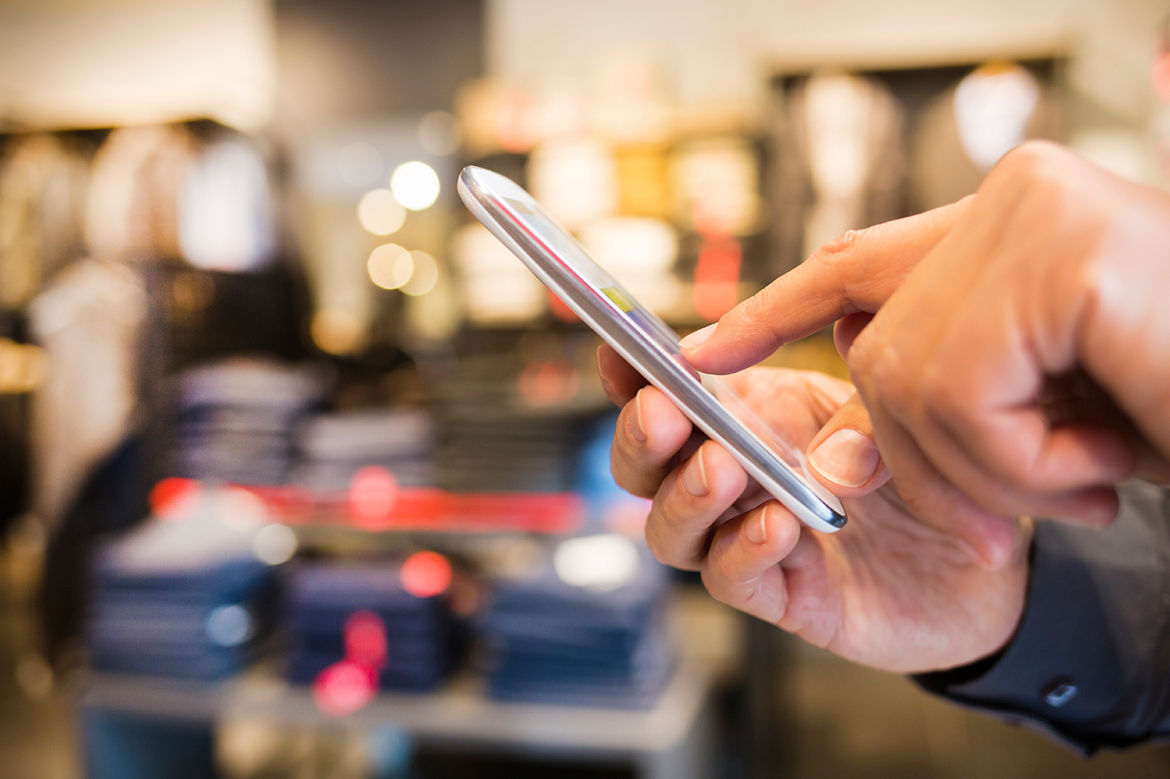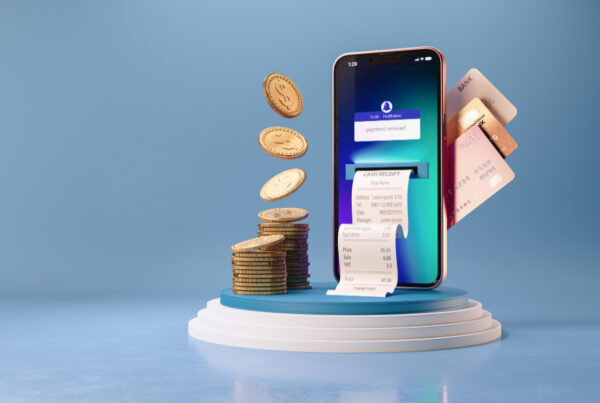Access to mobile phones has benefited women in multiple ways from enabling them to remain connected with their family to helping them to access information available through internet. However, mobile has also become a channel through which women experience harassment from strangers, especially men. In some Middle Eastern countries, men randomly dial mobile numbers till they reach a woman. In many emerging markets in Asia, Africa and Latin America, women have to think twice before sharing their number with retailer because of the fear of being overheard by a stranger. Often the number is sold by the retailer to miscreants, multiplying the problem. These miscreants are known to call up women frequently and pass derogatory comments, leading to a feeling of fear and insecurity in these women. For example, in India’s largest state Uttar Pradesh, some recharge retailers are known to sell mobile number of their women customers for a hefty price. The mobile number of women can fetch a price ranging from INR 50 (US$ 0.77) to INR 500 (US$ 7.72), depending on looks. This has led to sharp increase in harassing and abusive calls in the state. Between 15 November 2012 and 31 December 2016, Uttar Pradesh Police received 582,854 complaints on Women’s Help Line 1090 related to harassment on phone. Complaints related to harassment on phone constitute 88% of the total complaints received by police on Women Help Line 1090.[1]
In case male members of the family come to know about the harassment calls, they usually suspect the women of being a willing victim. Thus, restrictions are put on women and they become dependent on the men in their family for recharge. As men recharge women’s phone as per their convenience, women have zero balance for long duration leading to decline in their mobile usage. In some cases, women are completely restricted from using the mobile phone broadening the mobile ownership gender gap. GSMA report ‘Bridging the Gender Gap: Mobile Access and Usage in Low- and Middle-Income Countries’ also highlights harassment from strangers as one of the key barriers for women in owing or using a mobile phone.

Private Recharge concept
Mobile operators globally are concerned about secrecy of women’s mobile number and related harassment issues as it negatively impacts their subscriber base and revenue. To ensure secrecy of women’s mobile number and project themselves as a woman-friendly brand, mobile operators have started offering Private Recharge service. Private Recharge enables women to recharge at retailers without disclosing their mobile number. Private Recharge service masks woman’s actual mobile number and enable her to share an ‘alias number’ with retailer for recharge. To get the ‘alias number’ (also called as Private Code or OTP) the female customer has to send a keyword to SMS shortcode. The female customer receives the ‘alias number’ as a reply SMS. The female customer shares the ‘alias number’ with retailer for electronic recharge concealing her actual mobile number.

The USPs
Overcomes educational and financial constrains: As customers just need to send a simple SMS to generate ‘alias number’, hence, anyone can use this service. Unlike mobile apps which require smartphone and internet, SMS-based Private Recharge works with both feature-phones and smartphones. Moreover, SMS to generate ‘alias number’ is offered free of cost by operators, eliminating any financial burden on customers. Thus, Private Recharge can be used by all women irrespective of their age, education and financial status.
A proactive approach: There are a number of mobile security apps or services that allow women to block unwanted callers or seek help through SOS Messages during danger or emergency. However, most of these services are reactive, which women use during distress. On other hand, Private Recharge is a proactive service as it enables women to prevent exposure of their mobile number thus helping them to proactively avoid harassment and spam calls. Private Recharge is a unique service as it addresses basic concern of maintaining secrecy of female’s mobile number during recharge.
Complete secrecy: Exposure of mobile number can be prevented even at channel-user level that is operator’s administrative users and distributors. The reports generated for channel-users show ‘alias number’ instead of customer’s actual mobile number, ensuring complete secrecy.
Commercially live Private Recharge services

Private Recharge service is offered by multiple operators globally including Idea Cellular India, Vodafone India, Banglalink Bangladesh, Grameenphone Bangladesh and Orange Egypt. Some features of Private Recharge differs from country to country, however ease-of-use remains the focus in all deployments. In India, ‘alias number’ can be used one-time, hence, customers do not need to remember it. In Bangladesh, ‘alias number’ can be used multiple times. Customers can even opt for ‘alias number’ of their choice. In case they forget ‘alias number’, they can retrieve it by sending a SMS. In Egypt, to get the ‘alias number’, customers have to dial USSD code #5050#, instead of sending an SMS. Mahindra Comviva is the prominent vendor for Private Recharge. Figure 3 below shows key features of different Private Recharge services.
Private Recharge service has seen positive uptake in all countries. In Bangladesh, where the service is available from many years, more than 795,000 mobile users have got ‘alias number’. In India, though Private Recharge is new, it has seen keen interest from not only women, but also government bodies. In Indian state of Kerala, Cyber Cell of state police is working with Idea cellular to spread awareness about Private Recharge service. Kerala Police’s Cyber Cell and Idea Cellular have held workshops at women polytechnic institutes. The workshops were addressed by police officials who educated women about female security and benefits of Private Recharge. Posters and pamphlets explaining the Private Recharge service were also distributed.
Vodafone India in February 2017 launched a special women package ‘Vodafone Sakhi’, aimed at empowering women in rural towns of states of Uttar Pradesh (West) and Uttarakhand. ‘Sakhi’ in Hindi language means female friend. ‘Vodafone Sakhi’ package includes Private Recharge facility, 10 minutes free talk-time during zero balance, free health and beauty tips for 90 days and an on-boarding call in vernacular language. The package is targeted at women who follow a shared phone concept and do not get their own mobile phone due to security concerns.
Private Recharge marketing material

Benefits of Private Recharge to women
Ensuring security: By closing all possibilities of exposure, Private Recharge ensures that complete secrecy of mobile number is maintained. Miscreants can no longer access woman’s mobile number, preventing any unwanted incident and ensuring security.
Enabling unrestricted access to mobile services: Private Recharge creates trust & confidence in woman’s family that her mobile number is secure and unknown men cannot call her. They allow her unrestricted access to mobile services. On a whole, Private Recharge helps in closing the mobile ownership gender gap.
Empowering women: To maintain anonymity, female subscribers would ask the men to recharge for them. With Private Recharge, women are now recharging on their own. They feel independent and confident. In some countries religious norms do not allow women to share their private information like mobile number and photo. Private Recharge has enabled women to overcome this norm, as technically they are sharing a random number and not their actual mobile number.
Reducing spam calls and messages: Recharge retailers often sell the mobile number of customers to local sales agents for money. This leads to customers receiving lot of spam calls and messages, irritating them. Private Recharge prevents exposure of mobile number to sales agent, thus leading to reduction in spam calls and messages.
Benefits of Private Recharge to mobile operators
Competitive advantage and retention: Private Recharge conveys operator’s seriousness in respecting women’s privacy. It strengthen women’s trust in operator, helping them to retain female customers especially in markets where churn rate are high
Acquiring new customers: Women who frequently change their number to escape harassing calls are opting for operators offering Private Recharge and using the service to keep their mobile number secret.
Reducing zero-balance and increasing ARPU: Many women do not go to retailer for recharge, because of the fear of divulging their number to strangers. To maintain anonymity, women ask the men in their family to assist with the recharge. As a result, many of these women have zero-balance for long period of time as their brothers, father or husband are too busy to go to the retailer. However, with Private Recharge, they are able to recharge by themselves whenever they want, leading to reduction in zero-balance and increase in mobile service usage. Overall, this results in increased ARPU.
Mobile operators globally are appreciating Private Recharge concept and recognize the need for it in their country. They believe Private Recharge is a simple yet effective service that decreases barriers to adoption of mobile amongst women. Also, Private Recharge helps in realizing the United Nation’s Sustainability Development Goal number 5 of achieving gender equality and empowering women.
References:
Other references:
https://www.grameenphone.com/business/see-also/payment-recharge/private-recharge
https://www.banglalink.net/en/personal/offers/recharge-offers/pin-recharge






